
Initiative of the Coalition for Black and Quilombola Women from Tocantins addresses the issue of environmental racism
The environmental racism agenda has become a priority for black quilombola women from Tocantins, a state that has more than 36 quilombola communities. A priority because the Cerrado has suffered constant attacks from large capital projects (linked to deforestation and the uncontrolled use of pesticides, which affects its flora and fauna, as well as to diseases that affect the local population). The project, run by the Coalition for Black and Quilombola Women from Tocantins (Articulação de Mulheres Negras e Quilombolas do Tocantins – the Alagbara Coalition), is named “Good Living in the Cerrado: Quilombola Women in Agrobiodiversity” and was established to find strategies to confront this advance and help the affected areas recover.
With grant funding from the “People of the Cerrado confronting Climate Change: Territorial Rights and Food Systems,” the project began in 2022, is ongoing and is part of a series of activities that the organization has implemented to strengthen the Cerrado territory, particularly in traditional communities and with female leaders.

The project offers workshops addressing environmental racism as well as practices for the development of nursery gardens. Each quilombo has their own struggles, demands, culture and history. “Because we are part of the MATOPIBA region, agribusiness with its monoculture, use of pesticides and uncontrolled deforestation, has created serious problems for our people. There are also mining companies that pollute the water, damaging the environment. As a consequence, health, culture, education and religion have all been severely affected,” explained Gilma Ferreira, Coordinator of the Alagbara Coalition.
She noted that most of the communities are composed of and led by women, who suffer the direct consequences of racist acts, through violence. On a daily basis, countless challenges affect the communities, which have become vulnerable: constant invasions of their lands by land-grabbers and large-scale farmers who pollute the rivers, destroying the water sources, and hunger, as a result of the excessive spraying of insecticides and pesticides on their crops.
Directly benefitting 50 women, the project was created to meet the needs of quilombola communities, which are mostly led by black women, to promote circle conversations in these territories and create strategies to fight for survival, for the recovery of the water sources and for reforestation with native fruit trees from the Cerrado. The project also aims to encourage knowledge exchanges about health, agroecology, medicinal plants, income generation and self-care, which are structural conditions for good living and the financial empowerment of quilombola women.
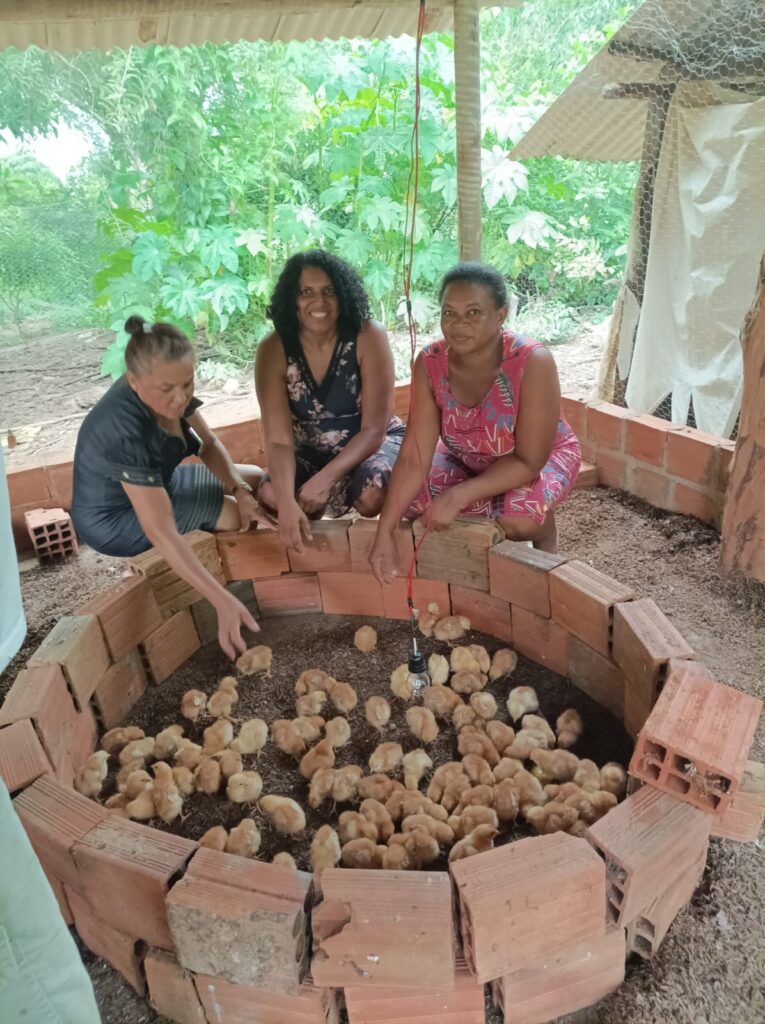
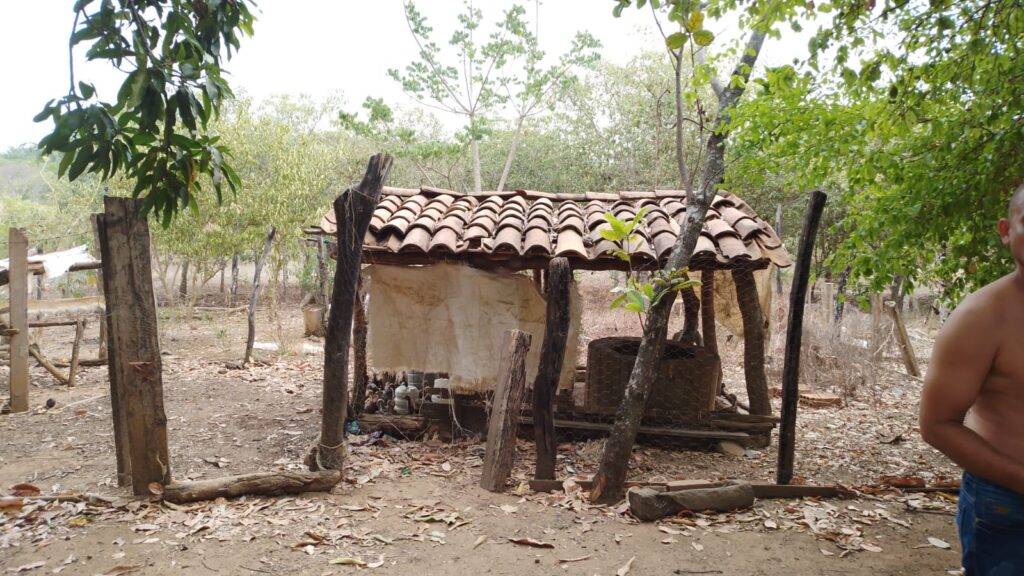
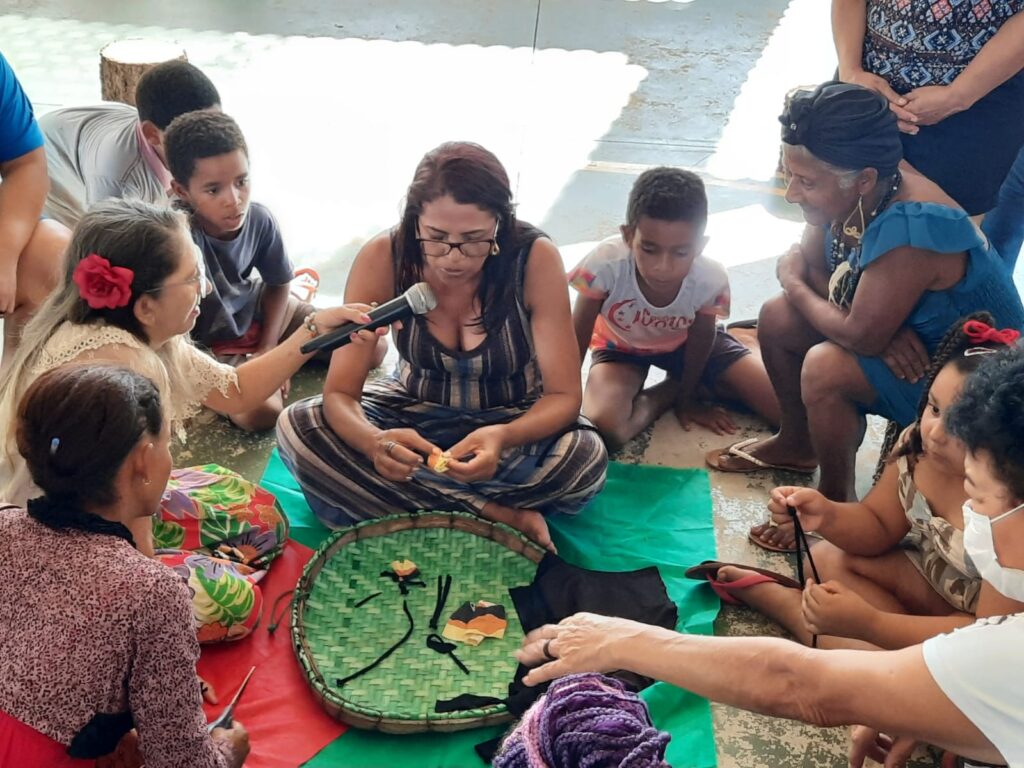
The project also therefore includes the restructuring of small animal husbandry and the promotion of income generation based on agroecology, for example exchanging creole seeds, sharing experiences in how to keep the land productive and for the preservation of rivers and springs.
According to Gilma, “women from these quilombola communities need to debate how to care for nature and to change how they plant and care for the land, for example, using agroforestry and protecting creole seeds. There is also a need to debate the issue of the women’s self-esteem, valuing their identity, through the struggle for education in the countryside, because many quilombola schools are closing, which means the children have to go into the city, where they are exposed to drugs and violence. The socio-environmental impacts that the quilombola communities experience also affect urban areas.”
Training – There are also plans to run a Workshop about Environmental Racism and another about Nursery Gardens, as well as training by rural technicians to advise on small animal breeding practices. There is also a plan to prepare the infrastructure for animal breeding, as well as to purchase animals, food and medicine for the first breeding months, and visits to regions affected by deforestation, where Cerrado trees will be planted, with priority given to the regions containing the headwaters of streams.
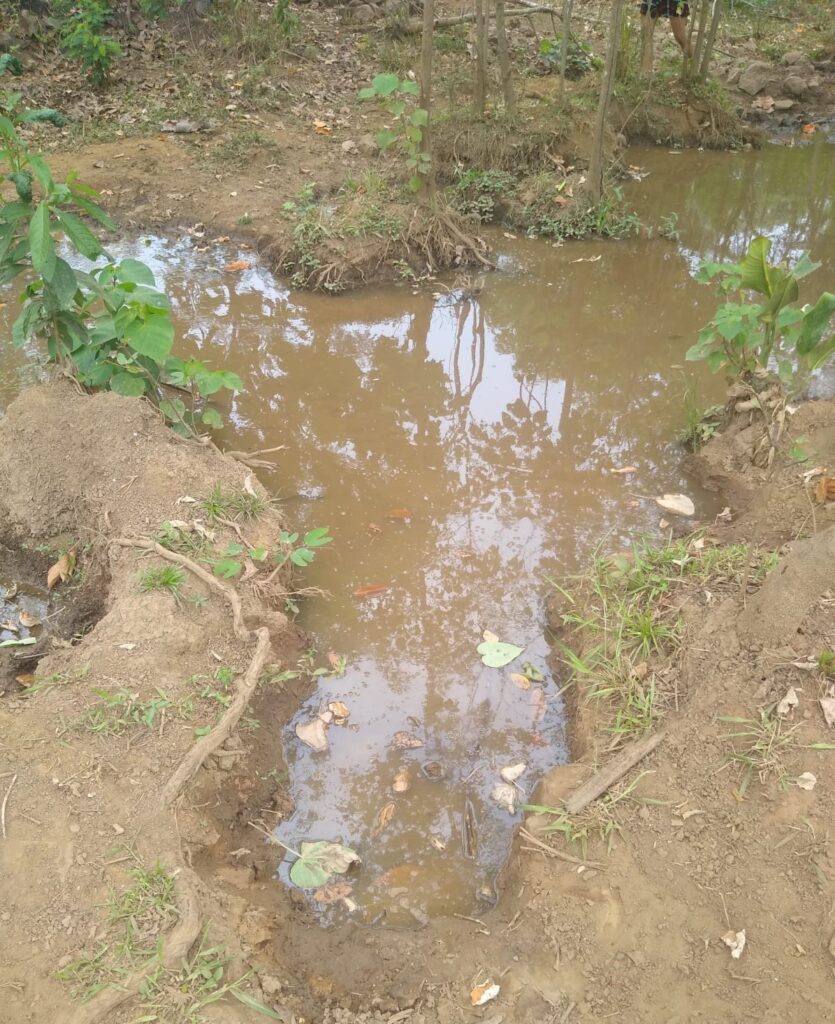
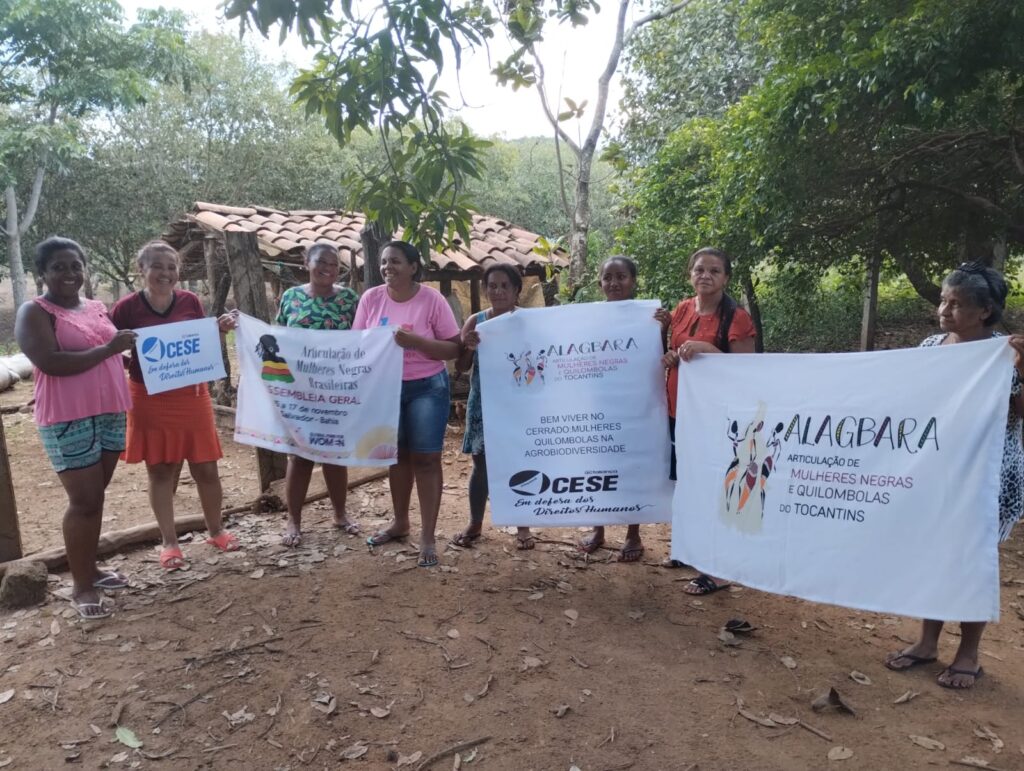
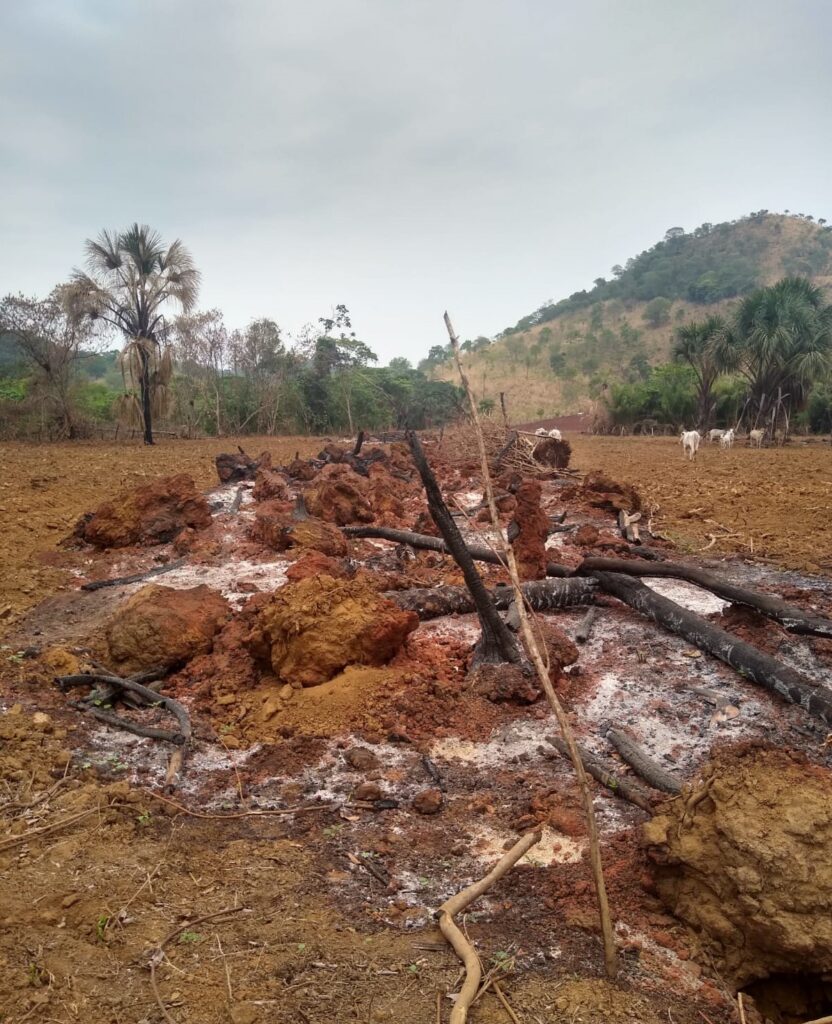
“We’ve had several meetings with the women from the two quilombola communities, planning activities, defining where to build the chicken coops through collective action. We have also visited the Malhadinha stream, where we could see the need to reforest the local springs. We’ve held circle conversations to plan this reforestation,” Gilma noted. According to the observations made on this visit, there is already a conspicuous lack of water due to the deforestation of springs by neighbouring ranchers. “We’ve planned a large event for February in the Malhadinha community and for quilombos close by to exchange creole seeds and plants native to the Cerrado,” she added.
The project team is also trying to identify the plants required to reforest the headwaters of the stream, aimed at its recovery through partnerships with environmental organizations and universities. The project also guarantees the distribution of staple food baskets for the women who participate in circle conversations.

